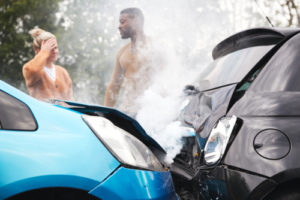
Getting into a motor vehicle accident is stressful enough as is, let alone when it’s compounded with an uninsured motorist claim. Data shows that about 26.7 percent of Florida drivers are uninsured, meaning that the likelihood of you getting into an accident with an uninsured driver is the highest out of any state across the country. Below, we take a look at what uninsured motorist insurance is, how it can help and why hiring an experienced personal injury lawyer is vital to your case.
What is Uninsured Motorist Insurance?
Uninsured motorist insurance helps protect drivers in the event of an accident with an uninsured driver. A driver can purchase uninsured motorist insurance as part of their own automobile insurance policy. This kind of policy will provide coverage for any injuries that the driver sustained when the at-fault driver does not have insurance.
In Florida, motorists are required to have a minimum of $10,000 personal injury protection insurance and $10,000 property damage liability. While Florida ranks as the state with the highest number of uninsured drivers, residents are required by law to possess car insurance. In the event of a serious accident with an uninsured motorist, the driver’s no-fault personal injury protection may not fully cover the expenses associated with the crash. If this is the case, the driver’s uninsured motorist policy will kick in.
What Does Uninsured Motorist Insurance Cover?
Uninsured motorist insurance may be able to cover the following:
- Medical costs
- Emotional pain and suffering
- Continuing care
- Disability
It’s important to note that uninsured motorist insurance does not cover any damage to the vehicle. A driver may select a limit for coverage. This means that the driver may not have selected a coverage limit that is higher than the bodily injury liability they previously selected.
Do I Need a Lawyer?
Handling the aftermath of an accident that involves an uninsured driver is complex. As such, the personal injury attorneys at Lawlor, White & Murphey have years of experience handling these complex claims and doing everything they can to see that their clients are adequately compensated for their injuries and lost wages. Do you want to get started on your claim? Schedule a free consultation today to get started.
Contact a Pompano Beach Personal Injury Lawyer to Discuss Your Car Accident Case in Florida
Did you or a loved one sustain serious injuries due to a car accident in Florida? Don’t let the medical bills pile up while you wait for the negligent party or their insurance company to do the right thing. Right now, you need an aggressive Port St. Lucie FL Accident Attorney on your side, fighting to get you the compensation you need, want, and deserve. The skilled attorneys at Lawlor, White & Murphey represent clients injured in uninsured motorist accidents in Broward, Dade, Palm Beach Counties, and throughout Florida. Call 954-525-2345 or fill out our online contact form to schedule a free consultation about your case. We have an office conveniently located at 2211 Davie Boulevard, Fort Lauderdale, FL 33312 as well as offices in Pembroke Pines, Weston, Coconut Creek, Pompano Beach and Plantation.
The articles on this blog are for informative purposes only and are no substitute for legal advice or an attorney-client relationship. If you are seeking legal advice, please contact our law firm directly.
